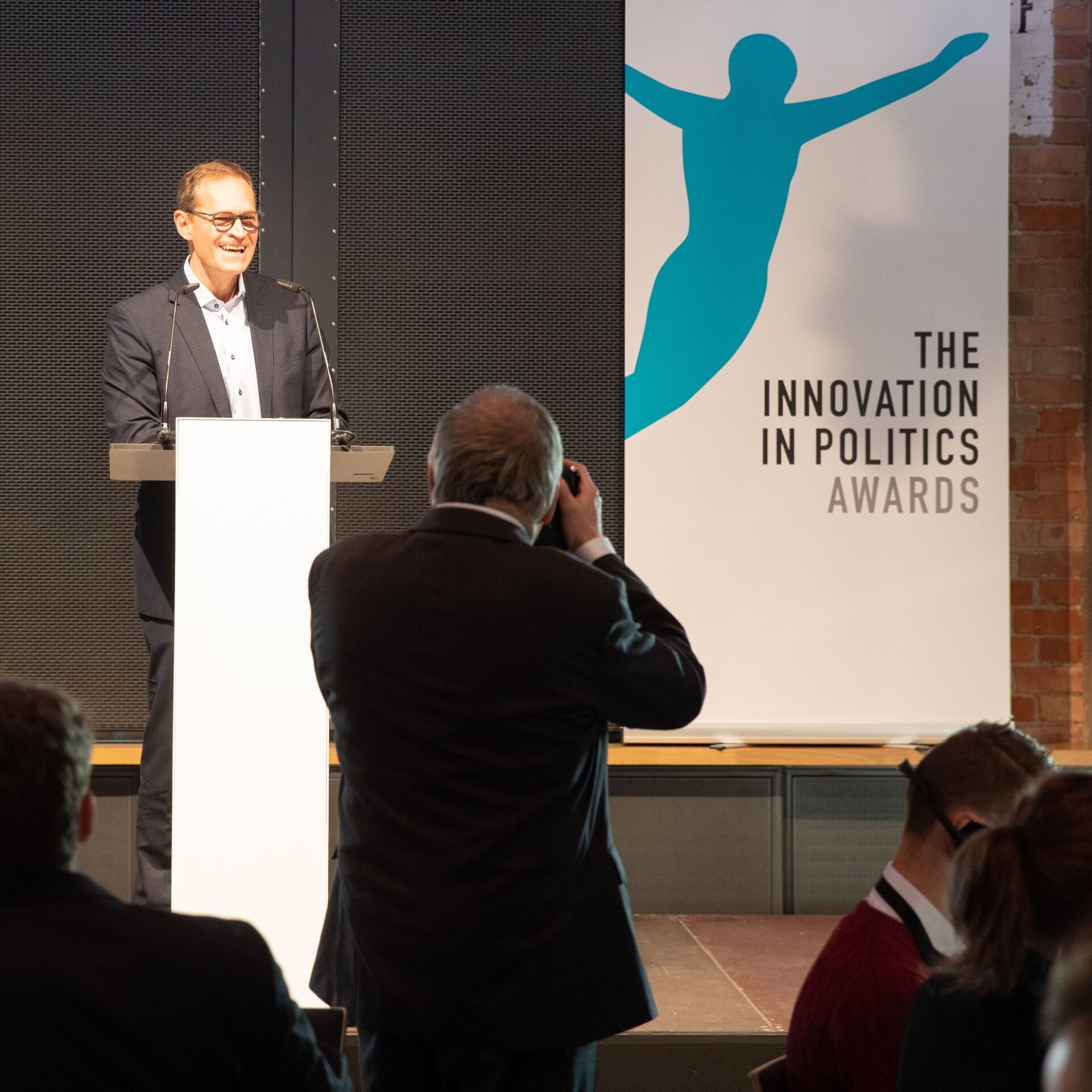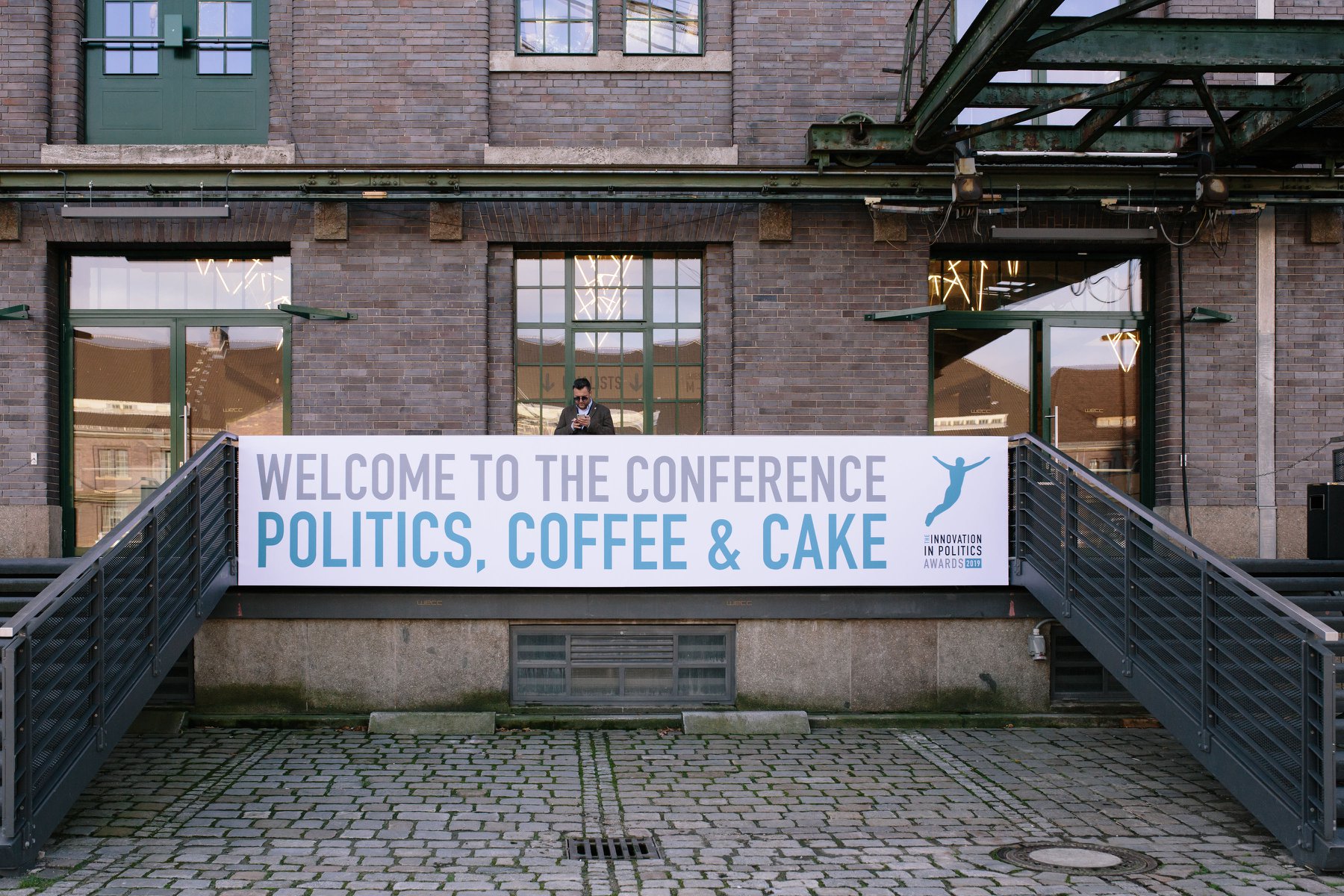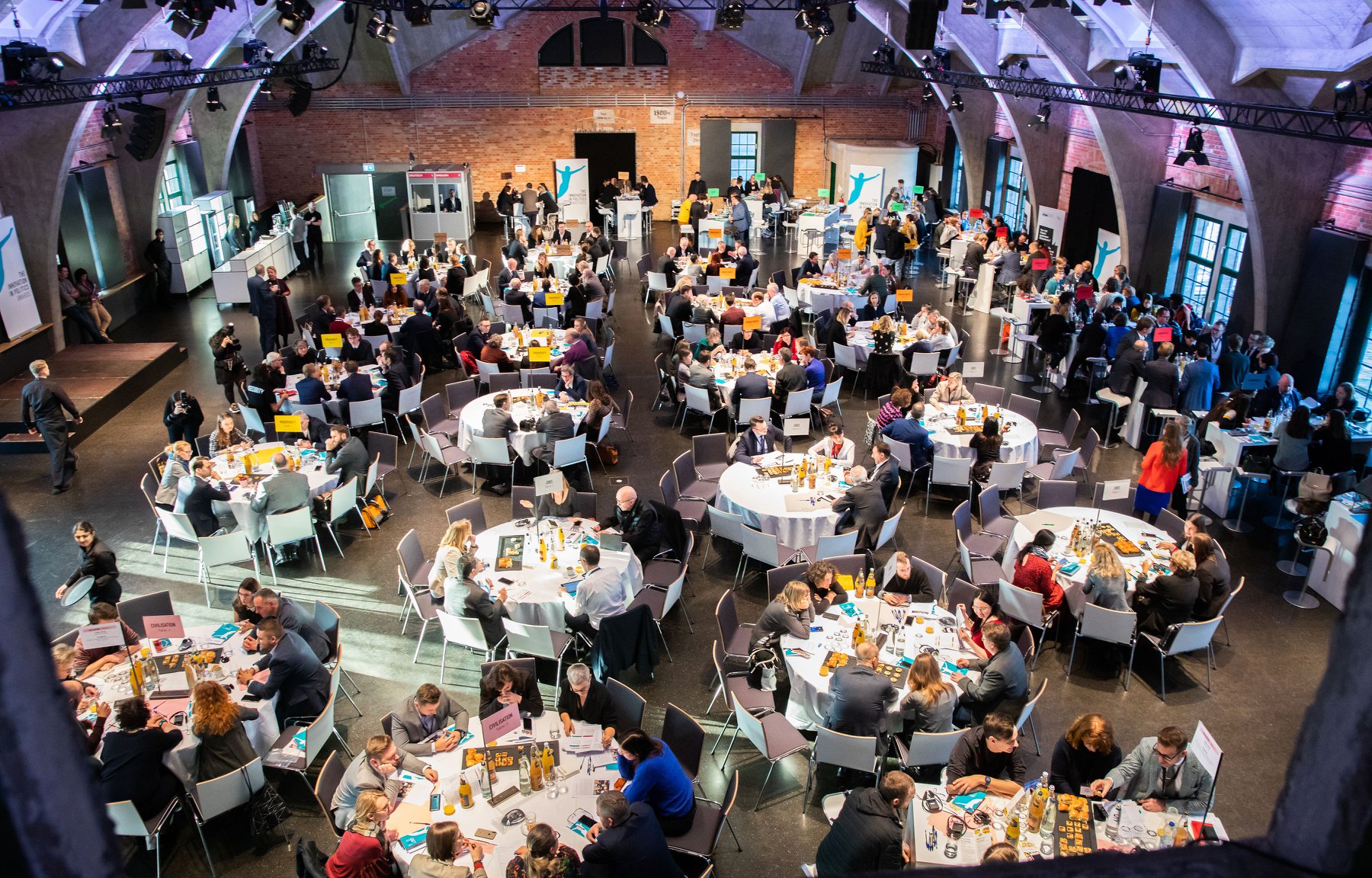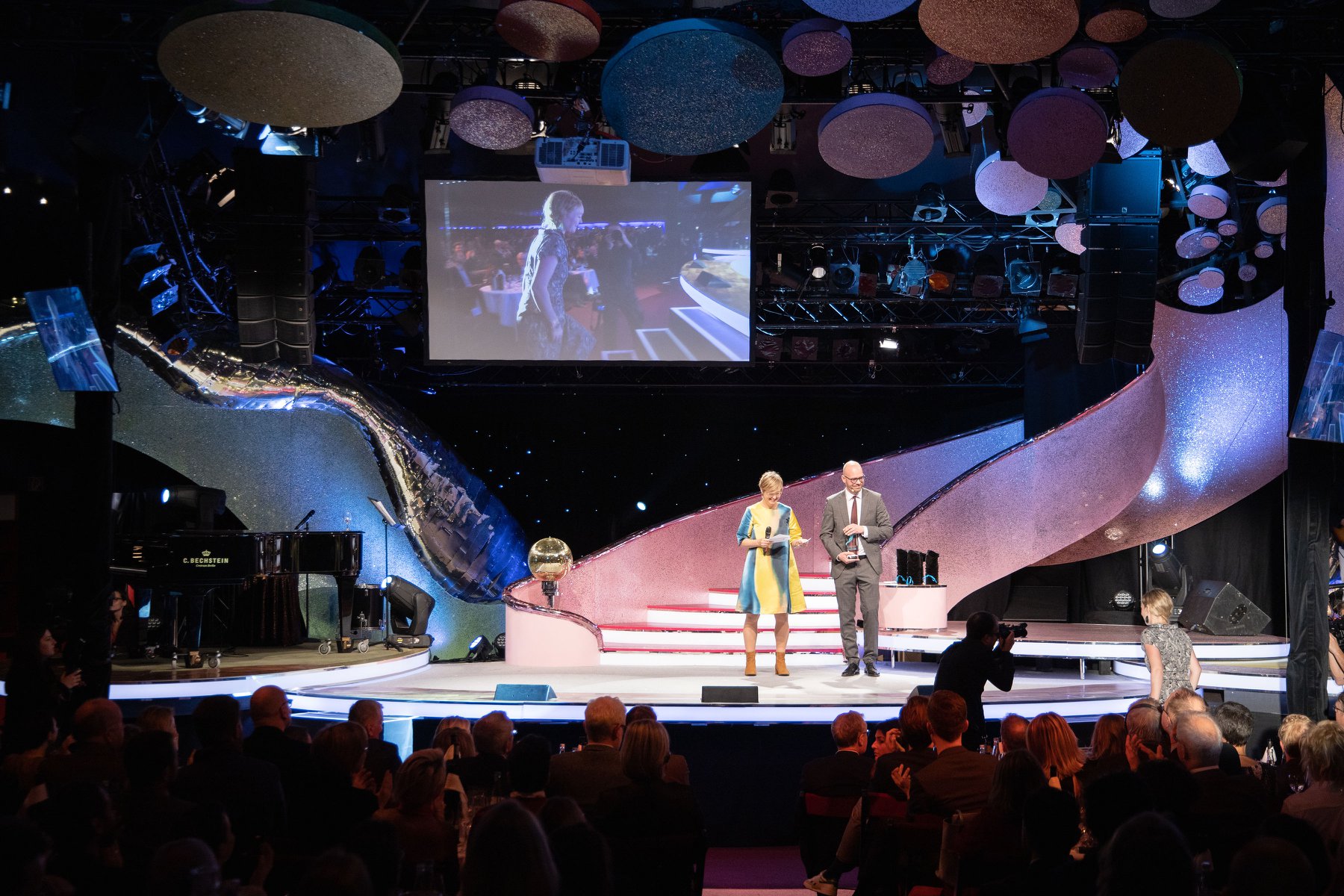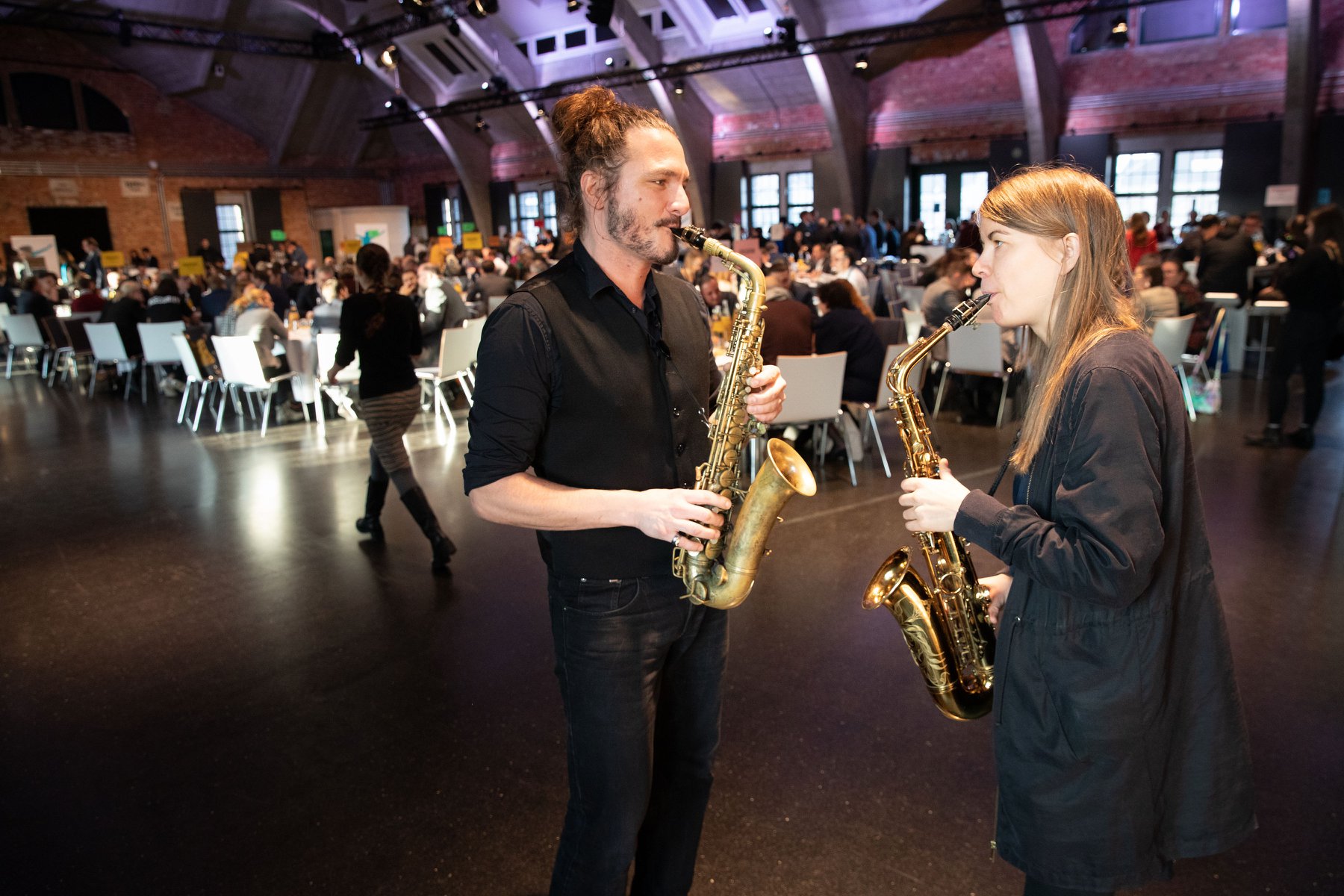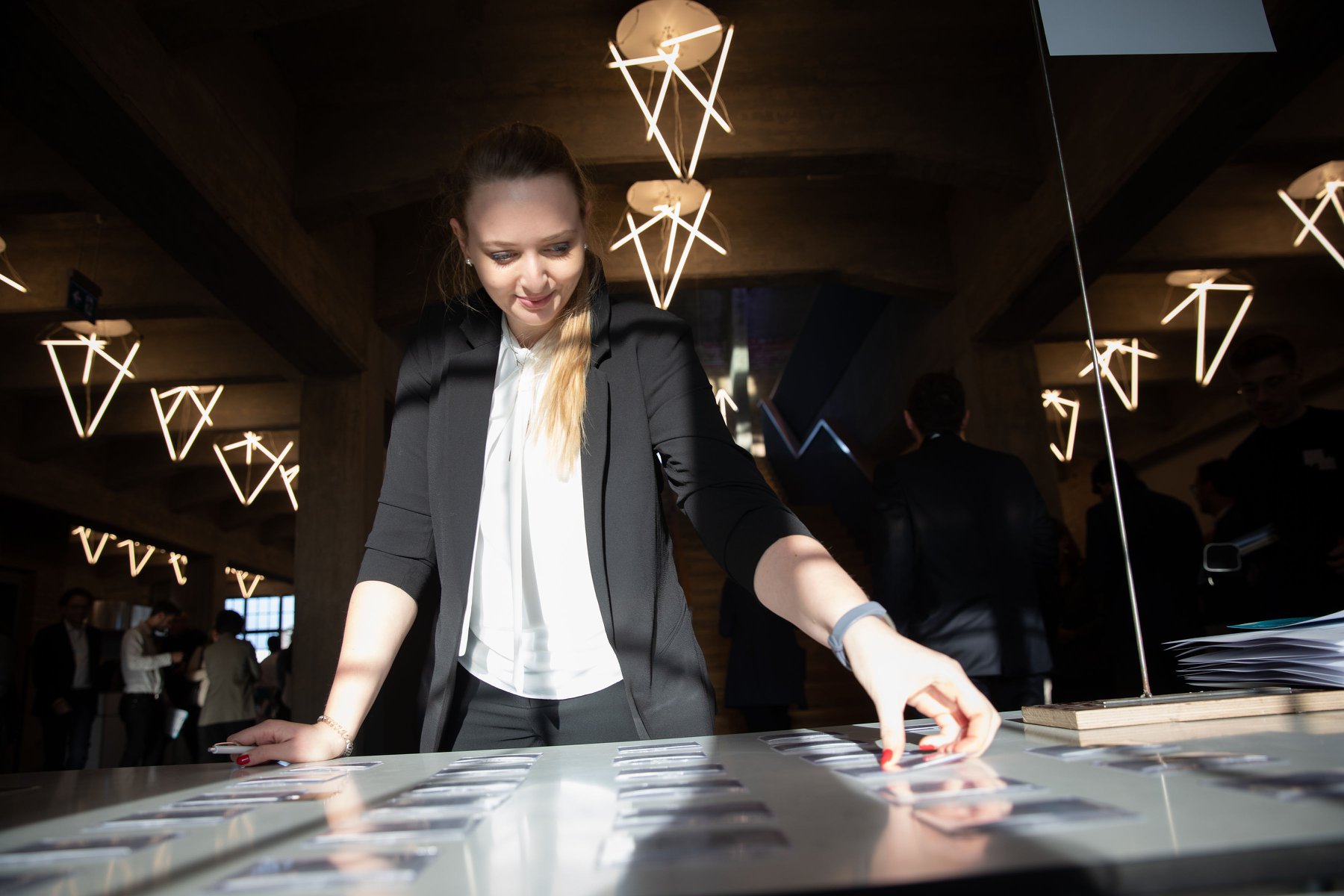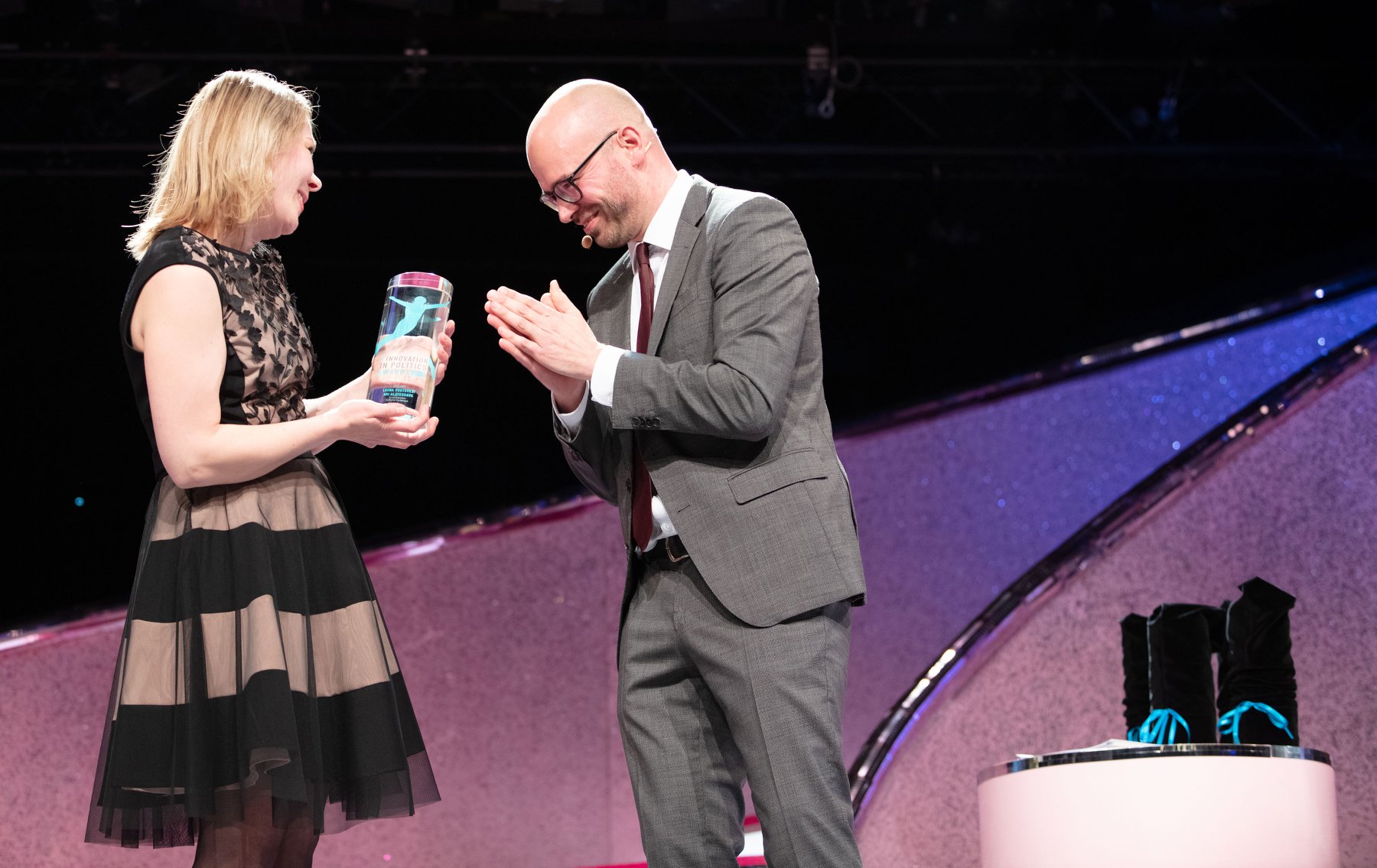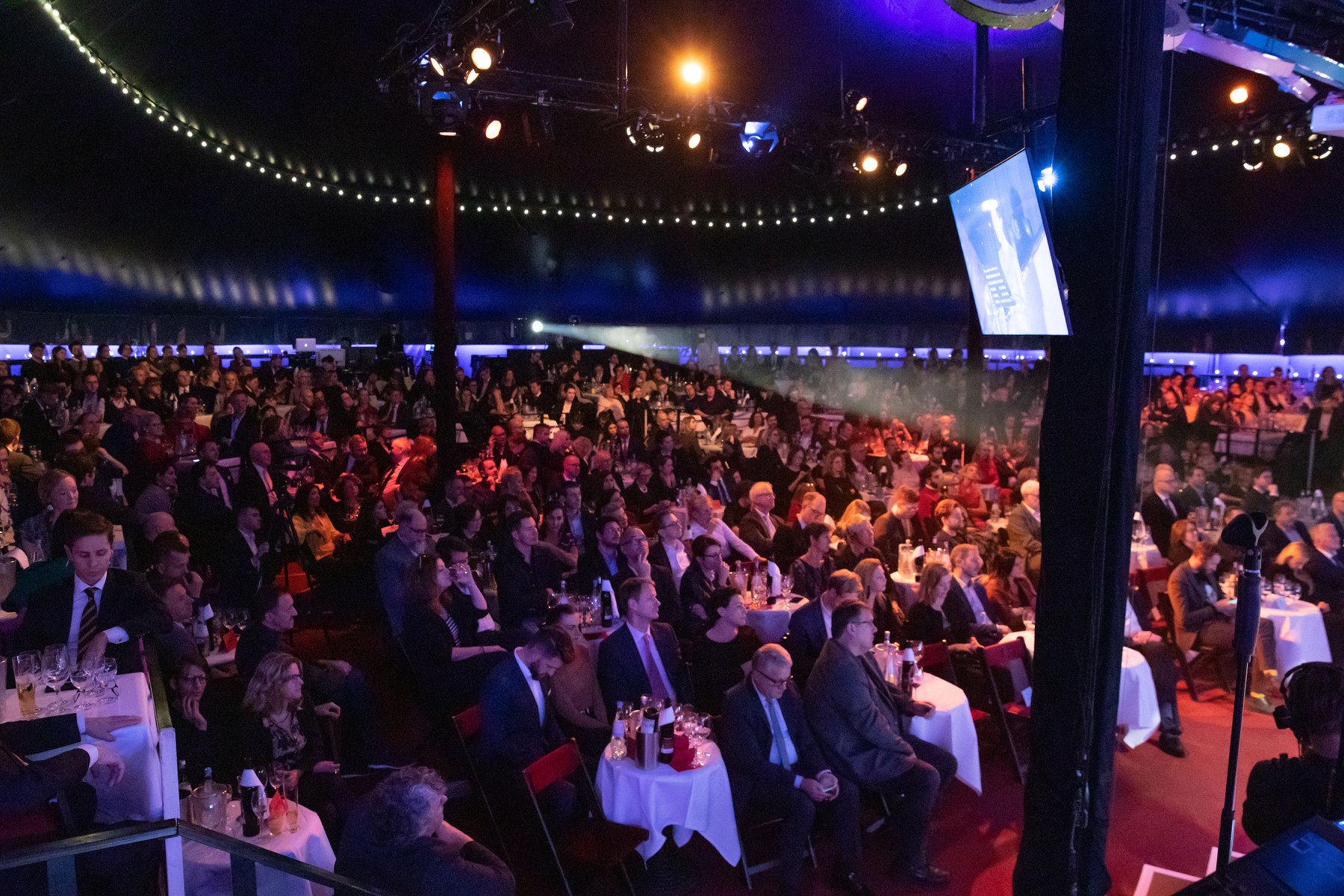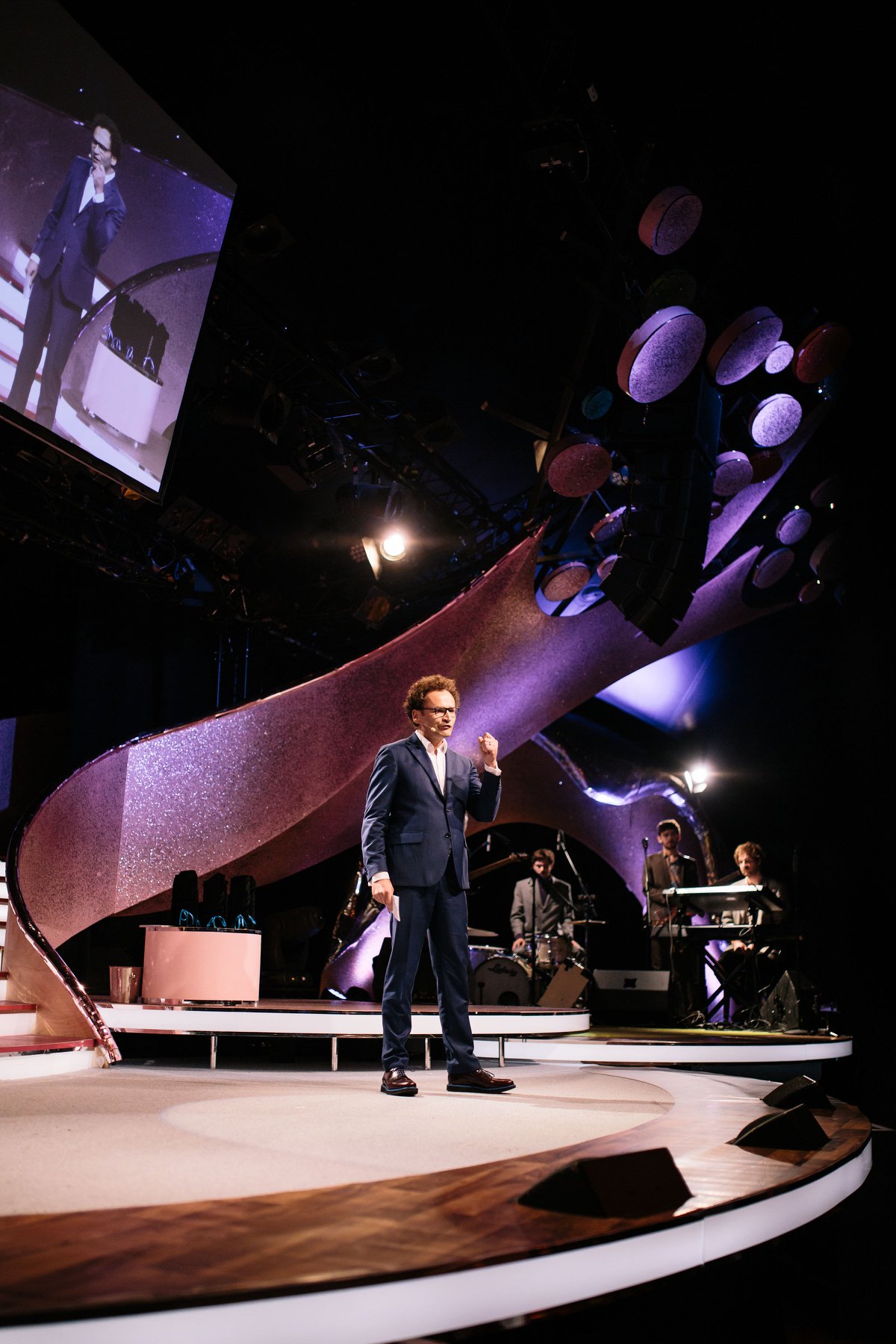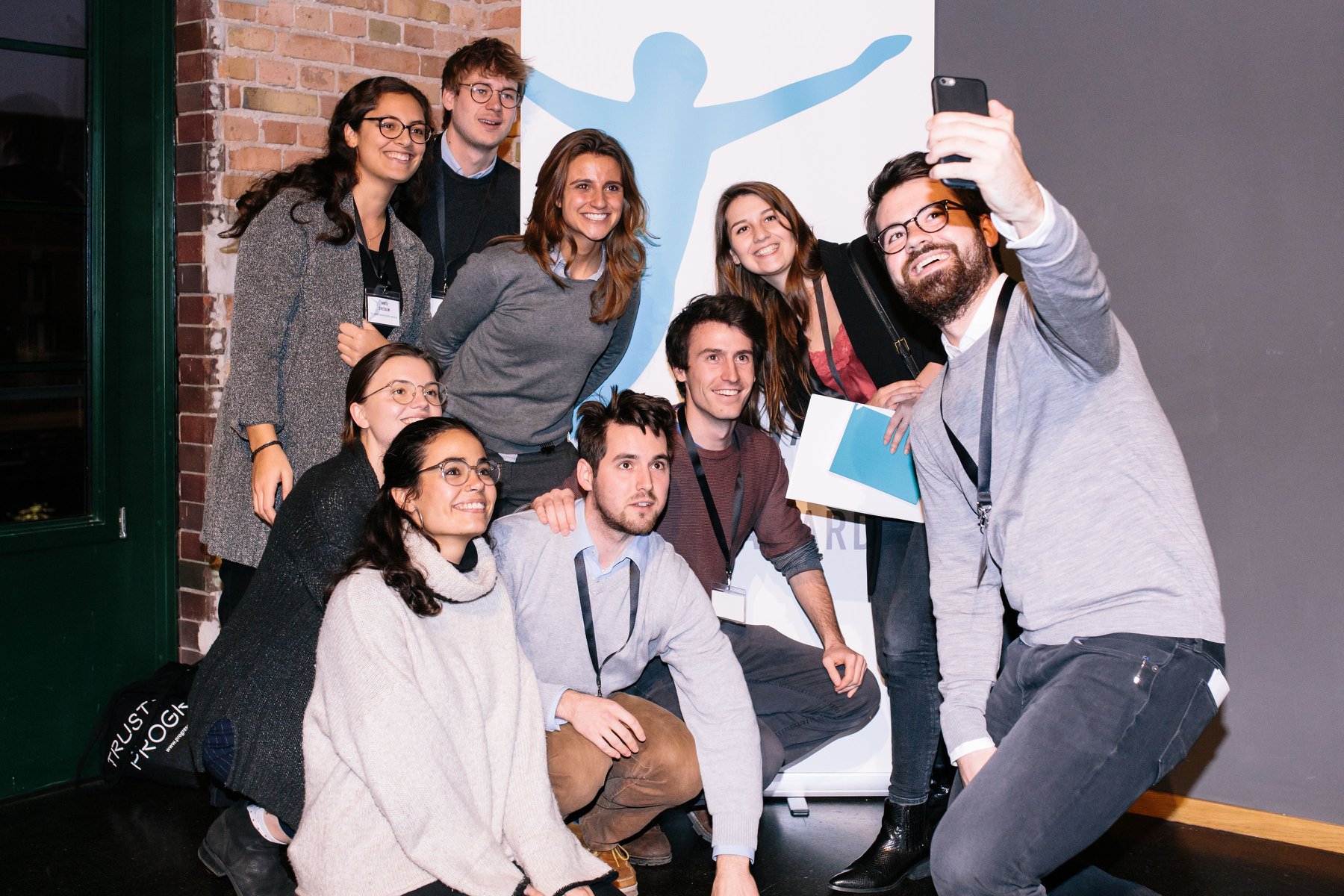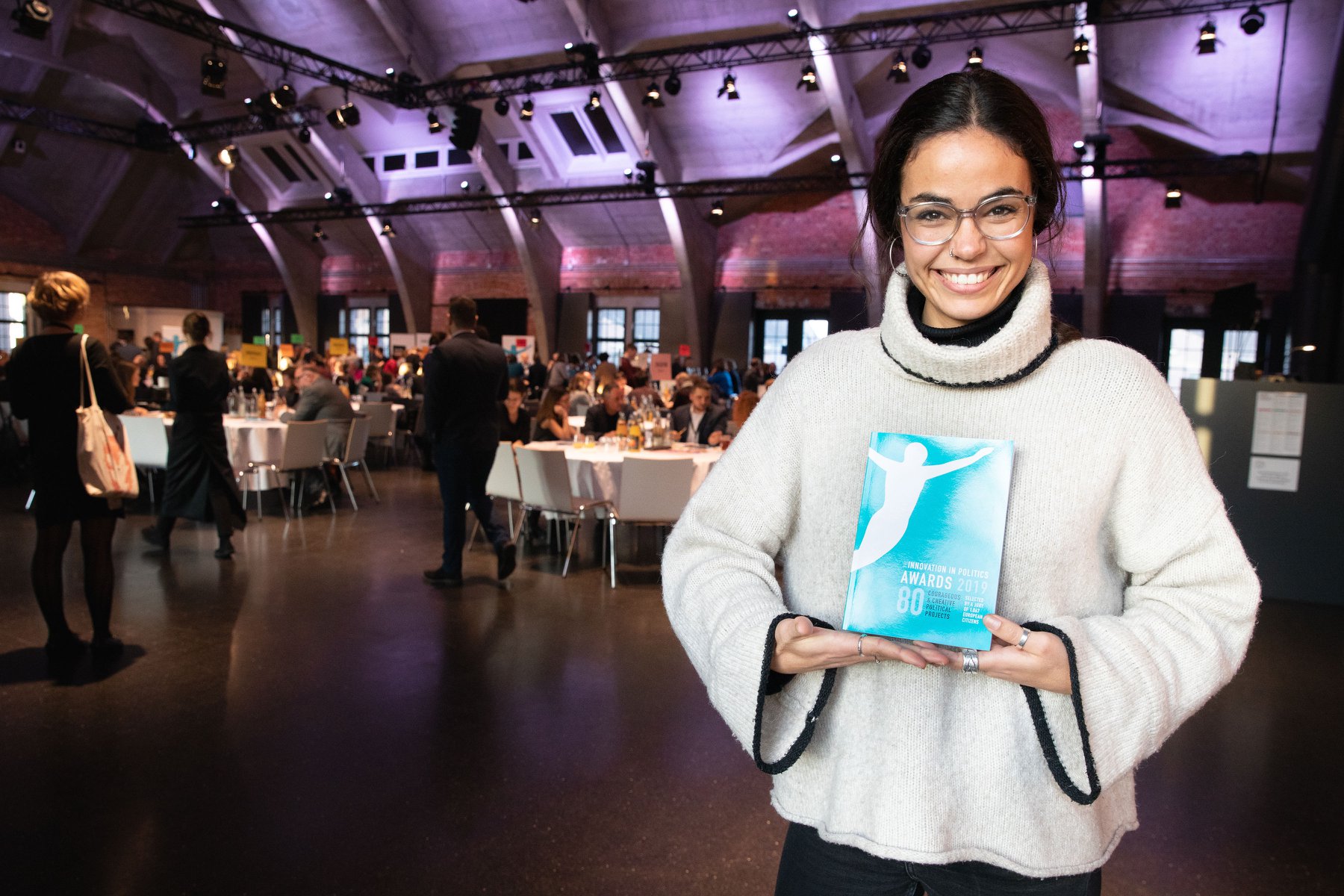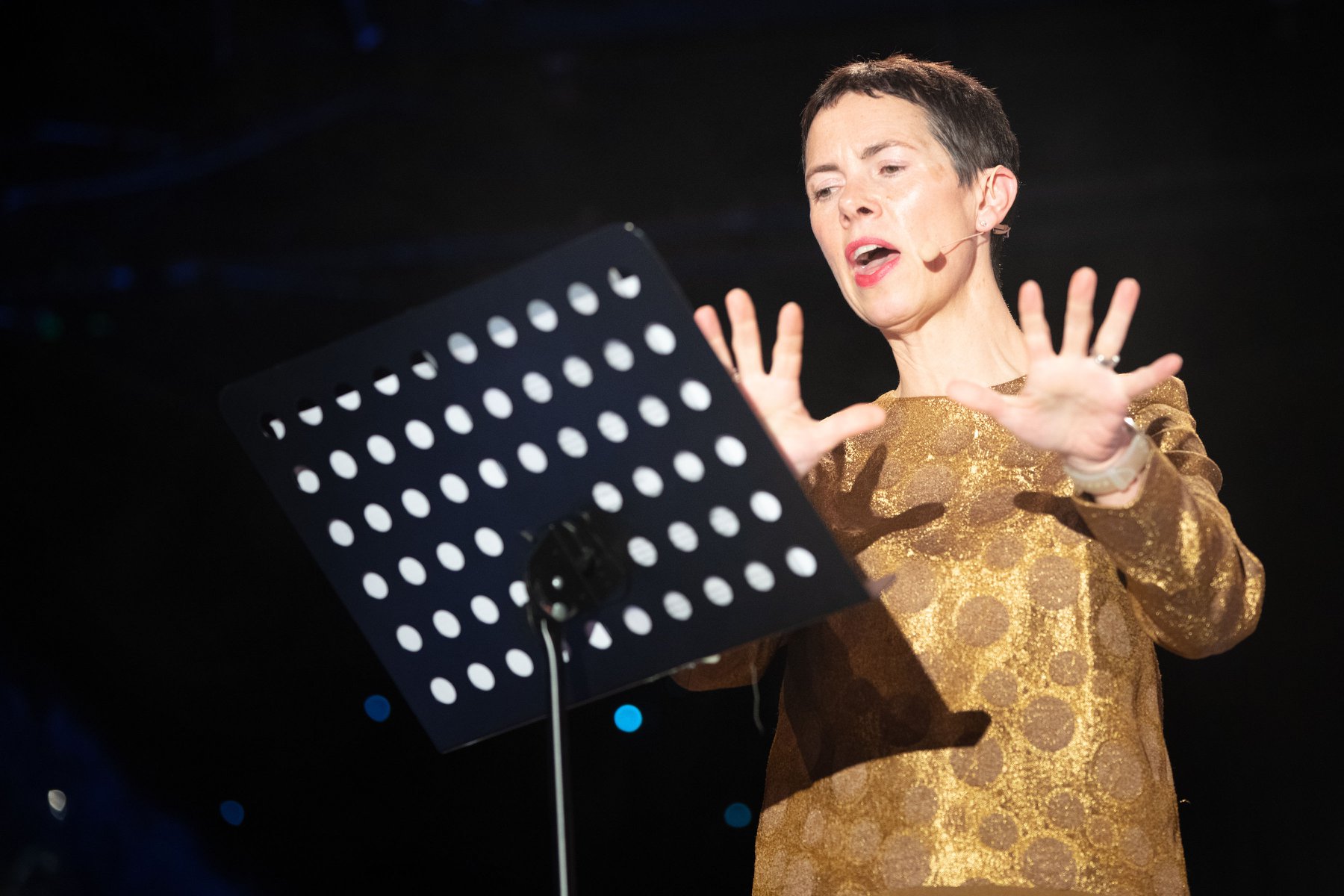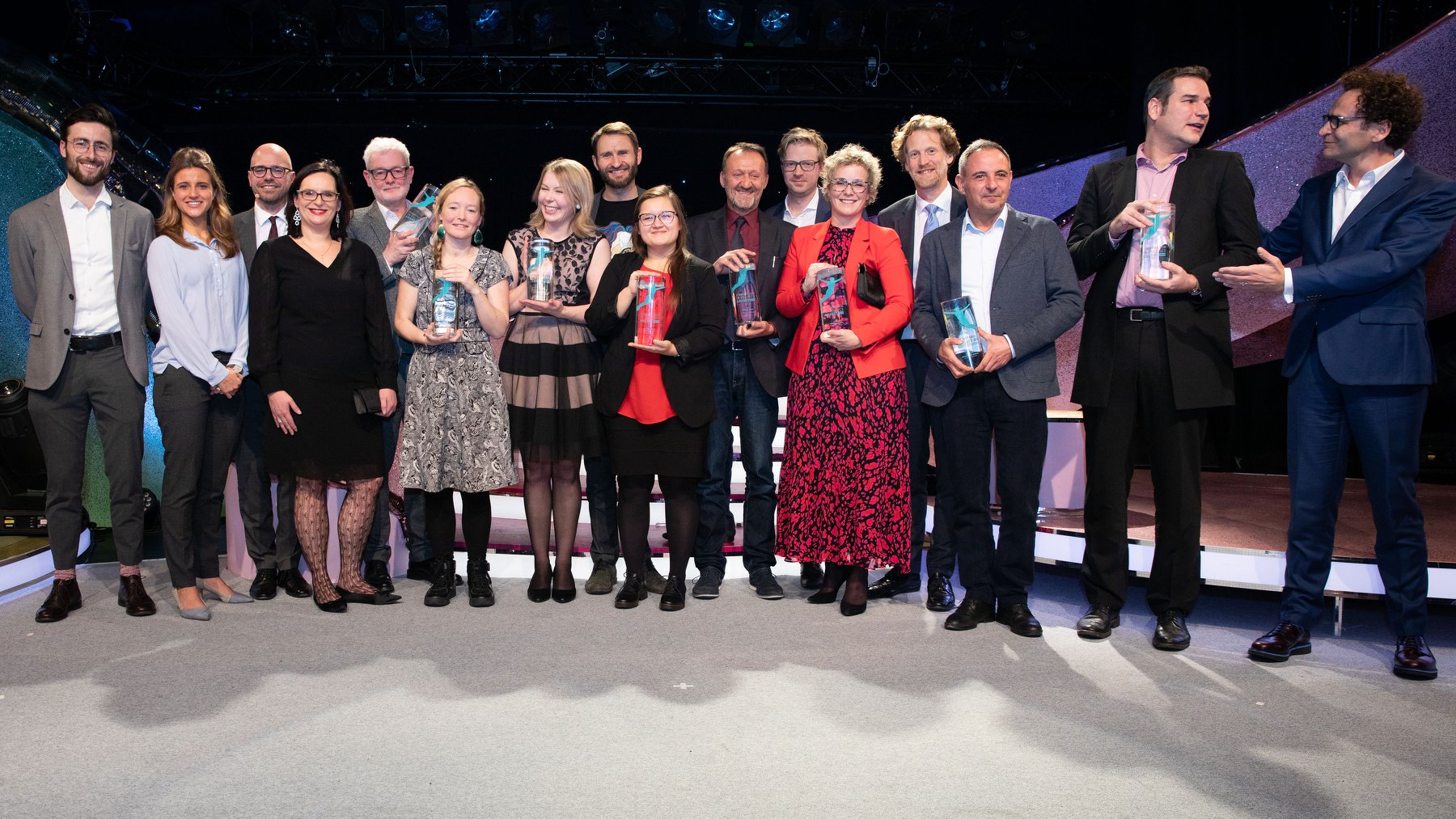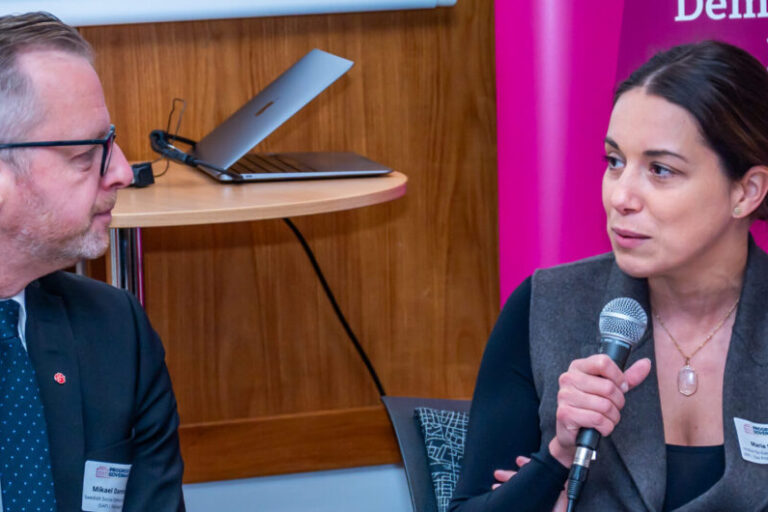This year, our partners from the Innovation in Politics Institute came to Berlin to honour the best political projects from all over Europe. Out of over 400 nominees, 80 finalists and eight winners in eight categories were selected by a jury of more than 1,000 European citizens. The international gala took place in the Tipi at the Chancellery in Berlin under the joint patronage of the German Federal President Frank-Walter Steinmeier and the Austrian Federal President Alexander Van der Bellen.
Since 2017, the Innovation in Politics Awards have been honouring successfully implemented political initiatives – regardless of party affiliation, political level or region. The aim is to strengthen, further develop and inspire democratic politics. The third Innovation in Politics Awards took place in the political heart of Berlin – the Spreebogen. 500 guests from the world of politics, business, society, media, and the arts, celebrated the most groundbreaking political work in Europe.
During the day, nearly 200 award nominees came together for a conference where they could exchange the details of their respective projects, along with their know-how on innovation. In the evening, the Awards finalists, their political peers, jurors, partners, journalists, special guests and members of the general public gathered for a gala to celebrate the finalists and winners of the Awards. Das Progressive Zentrum supported the conference by sending several table hosts and hostesses and had Paulina Fröhlich, Head of Program “future of democracy” moderate the gala.
The winners were selected in 8 categories by a jury of 1,000 European citizens. The categories are Quality of Life, Prosperity, Jobs, Ecology, Civilisation, Democracy, Human Rights, and Community. Besides the core criterion of Innovation. In addition to these, the European citizen’s jury applied three other criteria to all nominated projects: Participation, Building Trust and Sustainability.
The winning projects by category
DEMOCRACY
Citizens‘ council in Groningen
Wieke Paulusma, the Netherlands
Trust is crucial in life – and in politics. The open citizens‘ council in Groningen builds trust between citizens and politicians. When they sit shoulder to shoulder in the local council and decide together, a joint sense of responsibility quickly develops. The citizens are chosen at random in order to motivate a variety of people to participate. An evaluation by the University of Groningen showed increased trust on all sides, more active voting behaviour and a stronger community.
JOBS
FabriQ – the incubator for social innovation
Cristina Tajani, Italy
FabriQ is the first business incubator for social innovation in Milan. It offers economic incentives and support for companies that develop projects with a high social impact. Start-ups are encouraged to find new solutions to the challenges of our time and implement them economically – with a direct impact on collective cohesion in their district and throughout the city. Since 2013, FabriQ has supported more than 60 young companies in socially sustainable projects.
ECOLOGY
Resource management in Ii: The local solution for a global challenge
Leena Vuotovesi, Finland
Ii in Finland is to become the world’s first city without CO2 emissions. In a joint action of all citizens, Ii has already significantly reduced its emissions, thereby also saving half a million euros. Public buildings use renewable energy supplied by the local bioenergy producer. Children measure the consumption of water, heat and electricity in schools. New, fast bus lines reduce the use of private vehicles. In workshops, citizens learn how to repair equipment and clothing. Today, li produces ten times more energy than it consumes – and has also reduced taxes.
HUMAN RIGHTS
Safe harbours
Mike Schubert, Germany
The „Safe Harbours“ campaign is a project of the NGO Seebrücke (sea bridge) to decriminalise sea rescue and the creation of safe escape routes to Europe. It establishes local reception programmes for refugees. 70 German municipalities, cities and districts have already declared themselves as „safe harbours“. At the Seebrücke Congress in Potsdam, 12 cities formed an alliance with the German government to develop local reception programmes. The campaign is a democratic joint project of the cities and civil society.
PROSPERITY
GovTech Lab
Agila Barzdienė and Virginijus Sinkevičius, Lithuania
GovTech – the use of new technologies for public administration tasks – offers opportunities for start-ups and small businesses to support innovation in public administration. GovTech Lab has already supported ten public institutions in solving administrative problems with new technologies. The Lab coordinates the training of public administration staff in areas such as artificial intelligence or open data and also organises conferences to disseminate this knowledge widely.
COMMUNITY
The community refrigerator in Frome
Anna Francis, United Kingdom
In 2016, the local council of Frome, supported by Edventure Frome CIC, installed the first community refrigerator in the UK to reduce food waste and promote solidarity. Volunteers fill and clean the fridge daily in collaboration with local shops. This means that 90,000 fewer items are wasted every year and greenhouse gases are reduced by 140 tonnes. In 2018, a community pantry was opened for goods that do not need refrigeration. The refrigerator and pantry are open daily for everyone. As a result of this success, a further 60 community refrigerators have been installed nationwide.
QUALITY OF LIFE
Smart City Bad Hersfeld
Thomas Fehling, Germany
The „Smart City Bad Hersfeld“ project links public administration, citizens and businesses in the city to improve living and working conditions. With 30,000 inhabitants, it is the smallest city in Germany to have developed such a programme. A digital parking guidance system optimises the use of space and the finding of a parking space. Municipal charging stations for electric cars promote environmentally friendly transport. „Smartboxes“ on main roads collect data on traffic noise and waste materials for effective environmental management. Free Internet in the city centre motivates everyone to use such services.
CIVILISATION
Accessible tourism helps everyone
Georgi Kabzimalski, Bulgaria
In the Bulgarian city of Rila, tourists with disabilities can book personal guides as helpers. Initially, 30 unemployed people were trained as tour guides for this project. The project thus also opens access to the labour market and social integration for unemployed and inactive people, as tourism offers very good opportunities for medical-social and psychological rehabilitation.
Photos
